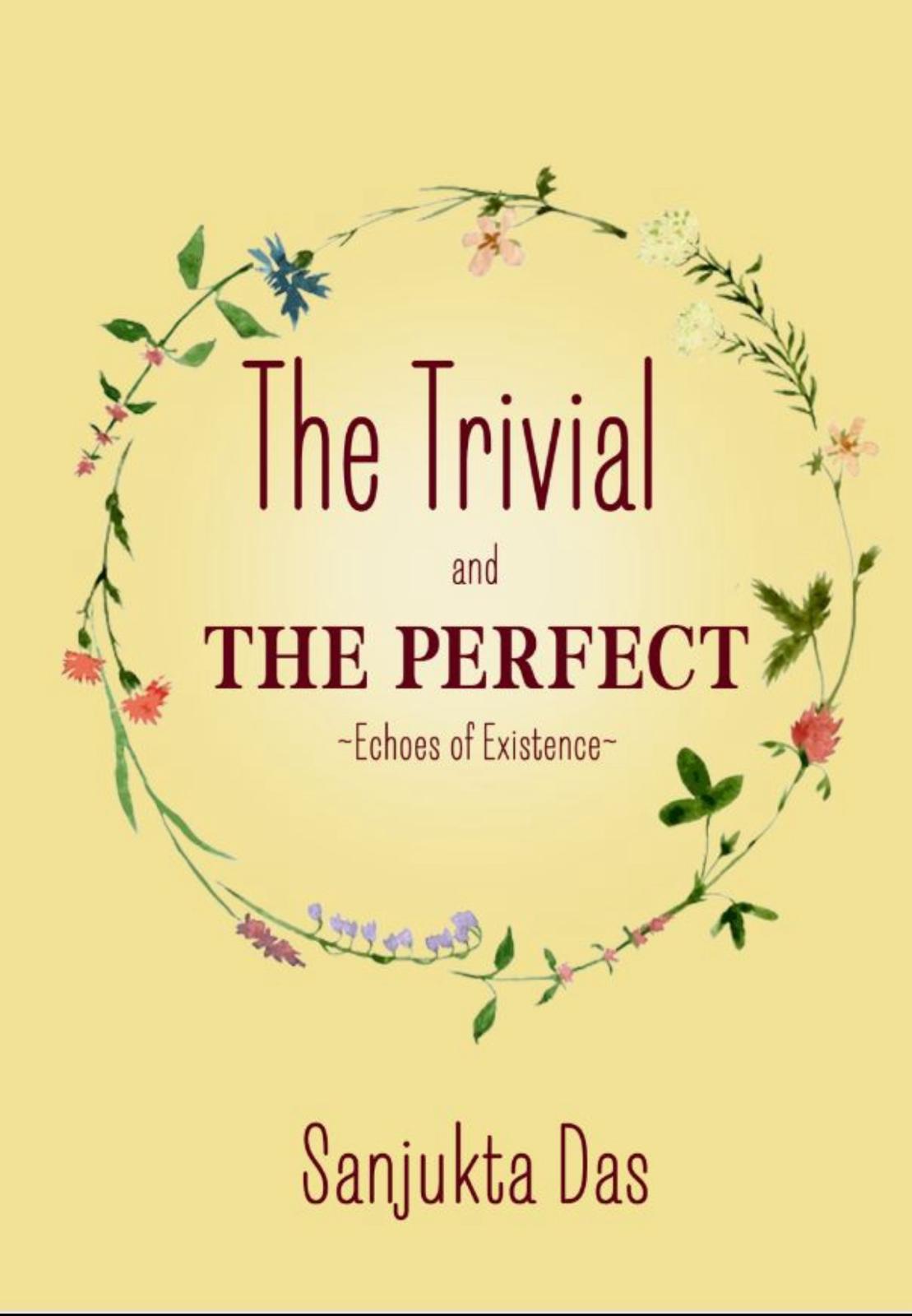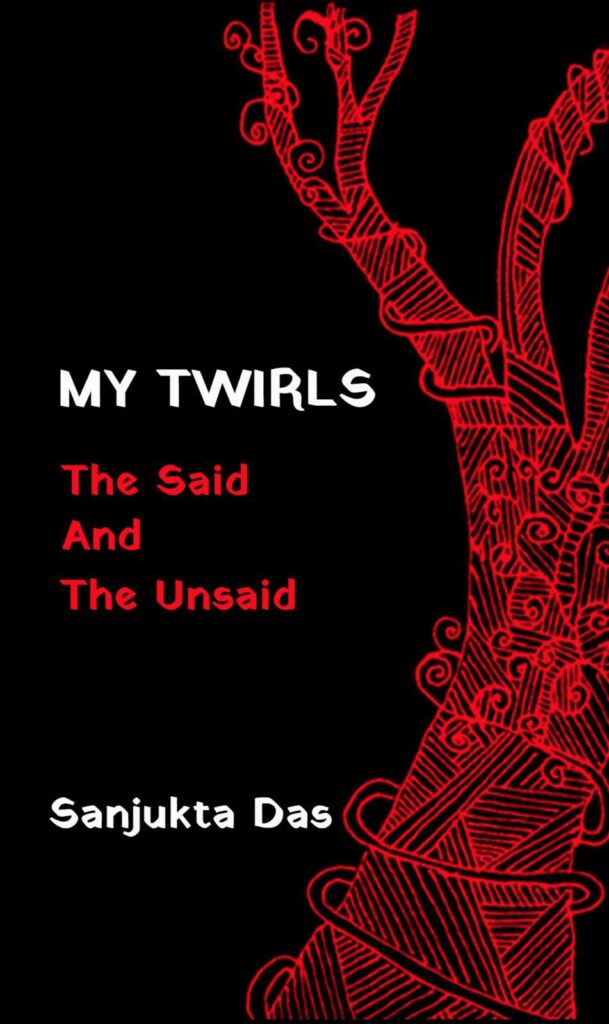In a world where insecurities and uncertainties often cloud our sense of self, poetry emerges as a powerful tool for personal growth and empowerment. Through its expressive language, introspective nature, and evocative imagery, poetry invites us to embrace our unique voice, navigate our emotions, and discover a renewed belief in ourselves. In this blog, we will delve into the therapeutic power of poetry, unravel techniques to boost self-confidence, delve into the path of self-acceptance and authentic expression, and uncover the profound impact of poetry on our mental well-being, character development, and education. Together, we will explore the transformative potential of poetry and embark on a poetic journey towards building inner strength and embracing our true selves. Join us as we unlock the hidden treasures of poetic expression and pave the way for a confident, self-assured, and empowered life.
This blog serves as a transformative guide, illuminating the power of poetry as a catalyst for personal growth and empowerment. Through in-depth discussions, vivid examples, and practical techniques, we will navigate the realm of poetry, providing readers with valuable insights and tools to build unwavering confidence, conquer self-doubt, and nurture inner strength. By embracing the therapeutic nature of poetic expression, readers will embark on a profound journey of self-acceptance, authentic expression, and newfound empowerment. To better understand how to build confidence and overcome self-doubt with poetry, please review the following:

How Does Poetry Serve as a Tool for Self-Reflection and Empowerment?
Poetry has long been revered as a powerful medium for self-reflection and empowerment. Through its unique blend of language, rhythm, and imagery, poetry offers individuals a creative outlet to explore their emotions, thoughts, and experiences. In this section, we will delve into the ways in which poetry serves as a tool for self-reflection and empowerment, examining examples, techniques, methods for improvement, and discussing the benefits from mental health and physiological perspectives, character development perspectives, and even an educational perspective.
The Power of Introspection
Poetry provides a sanctuary for introspection, allowing individuals to dive deep into their innermost thoughts and emotions. Through the process of crafting a poem, one engages in a profound self-exploration, unraveling the layers of their own psyche. By carefully selecting words, metaphors, and imagery, poets are able to articulate their inner worlds, gaining a clearer understanding of their experiences, desires, and fears. For example, a poet may reflect on a personal struggle with self-doubt, using evocative language to convey their journey toward self-acceptance and empowerment.
Techniques for Self-Reflective Poetry
There are various techniques that poets employ to facilitate self-reflection in their work. One such technique is introspective imagery, where vivid descriptions are used to evoke emotions and trigger personal memories. Another technique is the use of metaphor, allowing poets to draw parallels between external elements and their internal experiences. For instance, comparing the resilience of a tree in a storm to one’s own ability to withstand challenges can be a powerful metaphorical expression of self-empowerment. Additionally, the use of personal anecdotes and narratives within poetry enables individuals to reflect on their past experiences, growth, and lessons learned.
Improvement and Growth
Engaging in poetry as a tool for self-reflection and empowerment can be an ongoing journey of improvement and growth. As individuals practice and refine their poetic skills, they develop a heightened sense of self-awareness and emotional intelligence. They learn to recognize and express their emotions with clarity and precision. This process not only enhances their ability to reflect on personal experiences but also fosters a deeper understanding of the human condition, empathy, and connection with others. By honing their craft, poets continuously refine their self-reflection, allowing their poetry to become a mirror through which they can examine their own personal growth.
Benefits on Mental Health and Physiology
The benefits of poetry as a tool for self-reflection and empowerment extend beyond the realm of creative expression. Numerous studies have highlighted the positive impact of engaging with poetry on mental health and well-being. Writing and reading poetry can serve as a form of catharsis, providing an emotional release and a means of processing complex emotions. It can reduce stress, anxiety, and depression by fostering self-awareness and providing a healthy outlet for emotional expression. Moreover, the rhythmic and melodic qualities of poetry have been shown to have a soothing effect on the nervous system, promoting relaxation and overall well-being.
Character Development and Personal Growth
From a character development perspective, poetry cultivates virtues such as resilience, introspection, and empathy. By delving into their own emotions and experiences, individuals gain a deeper understanding of themselves and others. This introspection allows for personal growth, as individuals become more self-aware, compassionate, and open-minded. The vulnerability inherent in sharing one’s poetry encourages authenticity and helps break down barriers, fostering a sense of connection and community.
Educational Perspective
In an educational setting, poetry serves as a powerful tool for fostering critical thinking, creativity, and self-expression. By encouraging students to engage with poetry, educators can provide a platform for self-reflection, empowering students to explore their thoughts, feelings, and perspectives. Poetry offers an avenue for students to communicate their unique experiences and ideas, developing their voice and confidence in self-expression. Furthermore, studying and analyzing diverse poems can broaden students’ horizons, exposing them to different cultures, perspectives, and forms of artistic expression.
Poetry’s ability to serve as a tool for self-reflection and empowerment is undeniable. Through its creative and introspective nature, poetry enables individuals to embark on a journey of self-discovery, fostering personal growth and empowerment. By employing various techniques, reflecting on personal experiences, and embracing vulnerability, individuals can harness the power of poetry to gain insights into themselves and the world around them. From the mental health and physiological benefits to character development and the educational realm, poetry offers a multifaceted approach to self-reflection and empowerment that continues to inspire and transform lives.

What Techniques Can You Use in Poetry to Boost Self-Confidence?
Poetry not only allows for creative expression but can also serve as a powerful tool to boost self-confidence and combat self-doubt. By employing specific poetic techniques, such as affirmations, metaphor, and imagery, individuals can enhance their self-assurance within the realm of poetry. In this section, we will explore these techniques in detail, discussing how they can be utilized to foster a sense of confidence, empowerment, and self-belief. Through examples and explanations, we aim to provide insights into the transformative potential of these techniques in poetry.
Harnessing the Power of Affirmations
Affirmations, both in life and in poetry, have the ability to shape our mindset and beliefs. When incorporated into poetry, affirmations become a powerful tool for boosting self-confidence. By deliberately selecting positive and empowering words, individuals can create a self-affirming narrative within their poems. For instance, a poet may write, “I am strong, I am resilient, I am worthy,” reinforcing a sense of personal strength and self-worth. These affirmations serve as gentle reminders of one’s inner capabilities and can help counteract self-doubt, gradually instilling a more confident outlook.
Unleashing the Potential of Metaphor
Metaphor is a poetic technique that allows for the expression of complex emotions, experiences, and concepts through indirect comparison. It can be a powerful tool for boosting self-confidence by reframing one’s perspective. Metaphors enable individuals to see themselves in a new light, transforming perceived weaknesses into sources of strength and resilience. For example, a poet might describe their journey as a “phoenix rising from the ashes,” symbolizing their ability to overcome challenges and emerge stronger. By using metaphor, individuals can tap into their inner resilience, discovering newfound confidence and self-belief.
The Evocative Language of Imagery
Imagery plays a crucial role in poetry, as it engages the senses and creates vivid mental images. When utilized intentionally, imagery can enhance self-confidence by evoking emotions, memories, and empowering sensations. By painting a sensory-rich picture through words, poets can immerse themselves and their readers in a scene that embodies confidence and self-assuredness. For instance, a poet might describe the feeling of empowerment as “standing on a mountaintop, arms outstretched, embracing the limitless sky.” Such imagery cultivates a visceral experience of strength and encourages readers to embrace their own inner power.
Embracing Vulnerability and Authenticity
While not a specific technique, the act of embracing vulnerability and authenticity in poetry can greatly contribute to building self-confidence. By openly expressing personal struggles, doubts, and fears, individuals can create poems that resonate deeply with others. This connection and validation received from readers can instill a sense of confidence and assurance in one’s voice and experiences. When poets courageously share their vulnerabilities through their work, they inspire others to do the same, fostering a community of empowerment and mutual support.
Incorporating specific poetic techniques, such as affirmations, metaphor, and imagery, can be a transformative process in boosting self-confidence through poetry. Affirmations reinforce positive self-beliefs, while metaphor provides new perspectives that empower individuals to see their strengths in a different light. Imagery creates sensory-rich experiences that evoke feelings of confidence, and the embrace of vulnerability and authenticity fosters connections that validate and uplift. By harnessing these techniques, individuals can harness the creative power of poetry to cultivate self-assurance, combat self-doubt, and embark on a journey of empowerment.

In What Ways Does Poetry Encourage Self-Acceptance and Authentic Expression?
Poetry serves as a powerful catalyst for self-acceptance and authentic expression, providing individuals with a creative space to embrace their unique qualities and express their thoughts and emotions in a genuine manner. In this section, we will explore the profound impact of poetry on self-acceptance and authentic expression, discussing the ways in which it nurtures confidence, reduces self-doubt, and fosters a deeper understanding of oneself. Through clear explanations and creative examples, we aim to illuminate the transformative potential of poetry in encouraging individuals to embrace their true selves.
Embracing the Uniqueness Within
One of the inherent qualities of poetry is its ability to celebrate individuality and uniqueness. In poetry, there are no right or wrong answers, no rigid structures or predefined norms. This freedom allows individuals to explore their thoughts and emotions without fear of judgment or rejection. By embracing their distinctive perspectives, experiences, and voices, poets can tap into their authentic selves and express their truths. Poetry encourages individuals to celebrate their unique qualities, helping them develop a sense of self-acceptance and self-worth.
A Platform for Raw Emotion and Vulnerability
Poetry provides a safe haven for the expression of raw emotions and vulnerability. Through carefully chosen words, metaphors, and vivid imagery, poets can delve into the depths of their feelings and lay them bare on the page. By giving voice to their innermost struggles, joys, and fears, individuals not only validate their own experiences but also create a space for others to connect and empathize. This cathartic process fosters self-acceptance, as individuals recognize the validity and importance of their emotions, ultimately reducing self-doubt and increasing confidence in their own unique journey.
Transcending Societal Expectations
Societal expectations often impose limitations on self-expression, leading to self-doubt and a sense of inadequacy. Poetry, however, transcends these constraints and allows individuals to break free from societal molds. In the realm of poetry, there are no predefined rules or boundaries. Poets have the freedom to challenge norms, question conventions, and express themselves authentically. This liberation from societal expectations empowers individuals to embrace their true identities, fostering a sense of self-acceptance and confidence.
Unveiling the Power of Metaphor and Symbolism
Metaphor and symbolism in poetry serve as powerful tools for authentic expression. They enable poets to convey complex emotions and experiences indirectly, through the use of symbols and figurative language. Metaphors allow individuals to express what may be difficult to articulate directly, giving shape and form to their innermost thoughts and feelings. By employing metaphors, poets create a bridge between their inner world and the external realm, leading to a deeper understanding of themselves and their place in the world. This process of self-discovery and authentic expression in poetry cultivates self-acceptance and boosts confidence.
Creating Connection and Empathy
Poetry has a unique ability to create connection and foster empathy among individuals. When poets share their authentic expressions, they invite readers to glimpse into their world and share in their experiences. This connection, often built on shared emotions and universal human experiences, reassures individuals that they are not alone in their struggles or joys. The validation and understanding received from readers cultivates a sense of self-acceptance and confidence, as individuals realize that their thoughts and emotions matter and resonate with others.
Poetry serves as a powerful catalyst for self-acceptance and authentic expression by encouraging individuals to embrace their unique qualities, express their thoughts and emotions genuinely, and challenge societal expectations. Through the use of metaphor, symbolism, and raw vulnerability, poets find a platform to celebrate their authenticity and connect with others on a deep, empathetic level. By engaging in this transformative process, individuals cultivate self-acceptance, reduce self-doubt, and gain the confidence to embrace their true selves.

How Can Poetry Cultivate Resilience and Inner Strength?
Poetry possesses a unique ability to cultivate resilience and inner strength within individuals. Through its artful use of language, imagery, and emotion, poetry offers a transformative journey that nurtures these qualities. One way poetry cultivates resilience is by providing an outlet for expressing and processing emotions. Poets like Maya Angelou demonstrate this in their work, as seen in her poem “Caged Bird.” The poem’s powerful metaphor of a bird longing for freedom resonates with readers, encouraging them to confront and navigate their own struggles, ultimately building resilience in the face of adversity.
Another way poetry cultivates inner strength is by offering moments of catharsis and healing. Poets such as Rupi Kaur exemplify this through their vulnerability and self-reflection. In her collection “Milk and Honey,” Kaur explores themes of trauma, heartbreak, and self-love. By sharing her own experiences, Kaur creates a space for readers to confront their own wounds and find the strength to heal. This process of acknowledging pain and finding resilience through self-expression is a hallmark of how poetry can foster inner strength.
Moreover, poetry often encourages introspection and self-discovery, both essential components of building resilience. Poets like Langston Hughes exemplify this through their ability to inspire self-reflection and empower individuals to face challenges head-on. In Hughes’ poem “Dreams,” he urges readers to hold onto their dreams even in the face of obstacles. By embodying the power of resilience and determination, Hughes’ words resonate deeply, igniting a sense of inner strength within readers.
Furthermore, poetry’s brevity and concise form allow for concentrated doses of wisdom and inspiration. Poets distill complex emotions and experiences into succinct lines, which can be revisited and contemplated. This accessibility makes poetry an invaluable tool for building resilience and inner strength. Poets like Emily Dickinson demonstrate this through her concise yet profound poems that touch on themes of hope, resilience, and the power of the human spirit.
Poetry cultivates resilience and inner strength through its capacity to provide emotional expression, moments of catharsis, opportunities for introspection, and concentrated doses of wisdom. Poets like Maya Angelou, Rupi Kaur, Langston Hughes, and Emily Dickinson demonstrate these qualities in their respective works, inspiring readers to confront their challenges, heal from their wounds, and discover their inner reservoirs of strength. Through the transformative power of poetic expression, individuals can find solace, healing, and the courage to persevere in the face of adversity.

As we reach the end of this transformative exploration, we stand in awe of the profound impact that poetry can have on building confidence and overcoming self-doubt. Through the therapeutic power of poetic expression, we have discovered a multitude of ways to nurture our inner strength and embrace our true selves. From the introspective journey of self-reflection to the utilization of poetic techniques that boost self-confidence, we have gained valuable insights and practical tools to navigate the poetic realm. As a final tip, I encourage you to explore other resources that complement the power of poetry, such as the blog “Poetry and Mental Health: How Poetry Can Help Us Cope.” This interconnectedness reminds us of the importance of holistic approaches to self-care and well-being. Embrace the healing potential of poetry, lean into vulnerability, and trust in your unique voice. Let poetry be your steadfast companion on the path to self-acceptance, authenticity, and unwavering confidence. Remember, the transformative journey through poetry is ongoing, so keep exploring, creating, and embracing the transformative power of the written word.
If you wish to explore further poetic expressions that delve into the depths of coping, life’s values, faith, and the resilience that guides us, discover Sanjukta Das‘ latest published poem book, ‘My Twirls: The Said and The Unsaid.’ In this captivating collection, Sanjukta beautifully mirrors her coping style and shares profound insights on navigating life’s challenges with unwavering determination.
Share this post!





